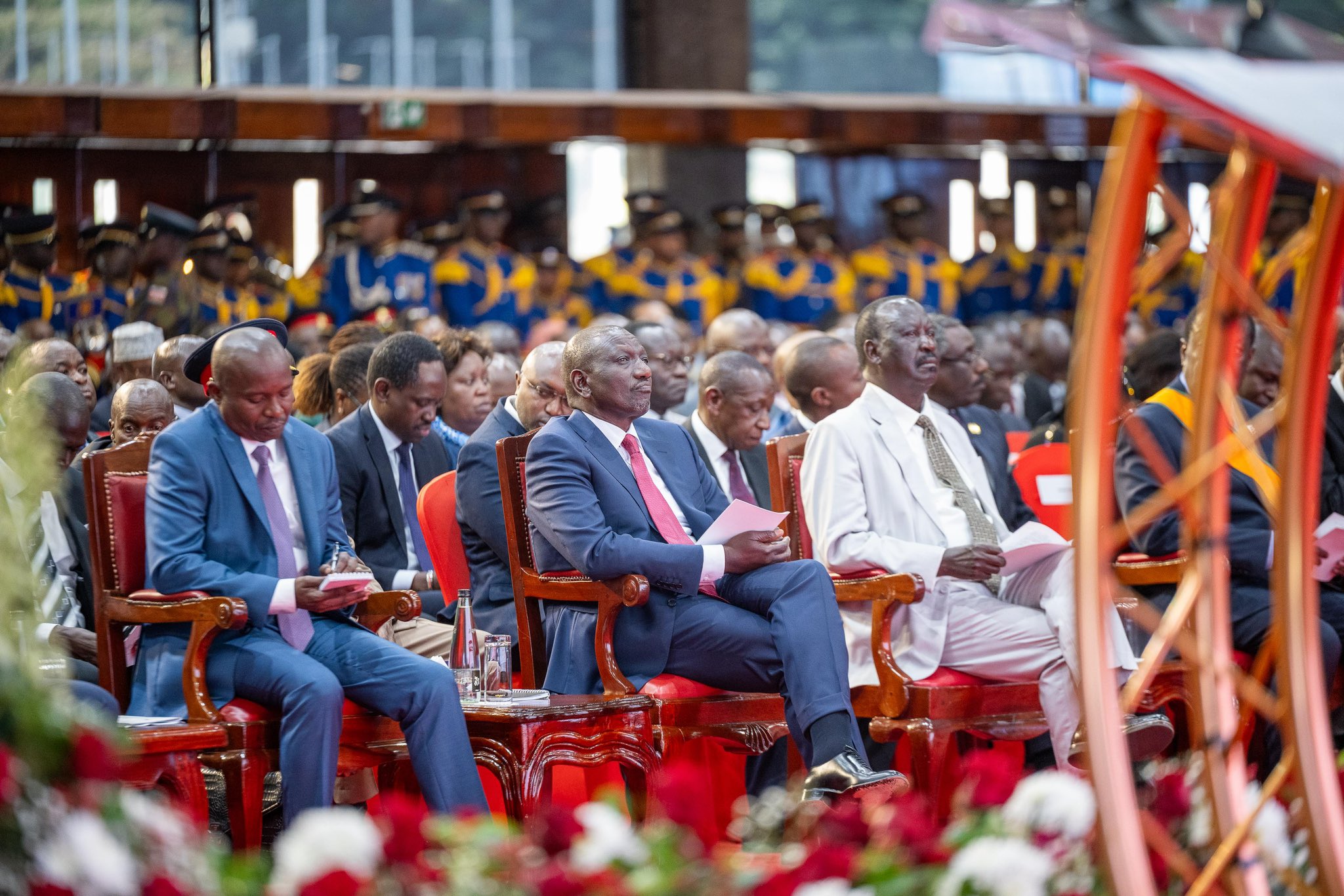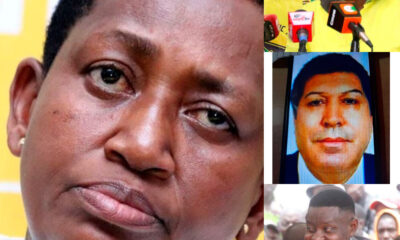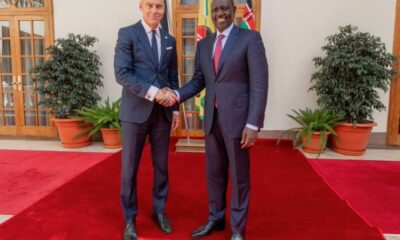Politics
New Move to Change the Constitution: Raila Odinga Spearheads Fresh Push for Constitutional Reforms
The former Prime Minister also called for enhanced mechanisms that would allow citizens to exercise sovereignty directly rather than through elected representatives.

NAIROBI, Kenya – Exactly 15 years after Kenya promulgated its current Constitution, a fresh wave of constitutional amendment calls is gaining momentum, with opposition leader Raila Odinga emerging as the strongest advocate for comprehensive reforms that could fundamentally reshape the country’s governance structure.
Speaking at the inaugural Katiba Day celebrations at the Kenyatta International Convention Centre on Wednesday, the former Prime Minister outlined sweeping proposals that include restructuring devolution, abolishing the provincial administration, and transferring key parliamentary functions to counties. His boldest call centers on scrapping what he terms a colonial relic that undermines the devolved system of government.
The ODM leader, who was instrumental in crafting the 2010 Constitution, argues that Kenya’s current administrative structure is bloated and inefficient. He has proposed a three-tier government system comprising national, regional and county levels to enhance development across the country.
“I believe the time has come to re-examine the model of devolution. For instance, Nigeria, with over 200 million people, has fewer states than Kenya has counties. I am not proposing the abolition of any county, but the provincial administration should be scrapped,” Odinga declared to the packed KICC auditorium.
His reform agenda extends far beyond administrative restructuring. Odinga wants Members of Parliament to surrender the National Government Constituencies Development Fund to counties, arguing that lawmakers should focus solely on oversight rather than implementing development projects. “We are not supposed to be funding projects through NG-CDF when we already have two levels of government. If you are both an MP and a contractor, then who is really exercising oversight?” he asked.
The former Prime Minister also called for enhanced mechanisms that would allow citizens to exercise sovereignty directly rather than through elected representatives. He insisted that Article 1 of the Constitution, which grants sovereignty to the people, has not been effectively realized. “Kenyans seem to understand sovereignty through elected representatives, but there is zero clarity on how to exercise sovereignty directly to achieve meaningful results,” he said.
Odinga’s proposals face significant political headwinds. Governors and local leaders are expected to mount fierce resistance against reforms that would dilute their control over resources and potentially end their political careers. Some proposals even suggest reverting to the pre-2010 provincial system of eight regions, a move that would trigger massive political realignments.
Political analyst Martin Oloo has already emerged as a vocal critic, flatly opposing Odinga’s constitutional amendment calls. This early resistance signals broader opposition that reformers will need to overcome to build the necessary political momentum for change.
The reform push comes at a time when the National Dialogue Committee continues its work on constitutional changes. The committee has recommended establishing the Office of the Leader of the Official Opposition and creating the office of Prime Minister through constitutional amendment. These proposals add another layer to the growing calls for constitutional review.
President William Ruto, who attended the Katiba Day event as chief guest, took a cautious approach to the amendment debate. Rather than endorsing constitutional changes, he focused on warning against judicial corruption that could derail the Constitution’s promise. “Our Constitution was born out of hard and painful lessons. The tragic events of 2007–2008 remind us how far our mission is,” the President said, urging vigilance against judicial misconduct.
The President instead highlighted the success of devolution, noting that the National Government has transferred a total of Sh4 trillion to counties since devolution began 12 years ago. This year alone, under the Division of Revenue Act, the government allocated an unprecedented Sh415 billion to counties, nearly Sh30 billion more than the previous year.
Prime Cabinet Secretary Musalia Mudavadi raised practical concerns about the financial implications of repeated constitutional amendments. He noted that the 1963 Constitution was amended 30 times, while the 2010 Constitution has already faced 14 attempts at amendment. “We must ask ourselves whether we want to spend nearly Sh20 billion on legislating laws instead of buying medicine for hospitals or building schools,” Mudavadi questioned.
Kenya’s constitutional amendment history is fraught with failed attempts, most blocked by the courts. Politicians have often been accused of pushing changes to advance personal or political interests. The most notable recent case was the Building Bridges Initiative, backed by Odinga and retired President Uhuru Kenyatta, which was struck down by the courts after a lengthy legal battle.
Any constitutional changes would require navigating Kenya’s complex amendment procedures outlined in Article 257. The popular initiative route requires collecting at least one million signatures to launch the process. A draft bill must then be submitted to county assemblies, and if it touches on fundamental issues outlined in Article 255(1), the matter must go to a referendum for final approval by citizens.
Constitutional law expert Prof Ben Sihanya supports Odinga’s call for change, particularly regarding gender representation. “Unless we amend the Constitution, it will be impossible to solve the two-thirds gender stalemate through appointments. Democracy has its own rules. You cannot force voters to elect women. Even if you dissolved Parliament and held fresh elections, you would not achieve the two-thirds threshold without a constitutional formula,” he argued at a Nation Media Group forum marking the Constitution’s anniversary.
Odinga’s critique of the current system extends beyond structural issues to institutional performance. He specifically targeted the National Police Service, arguing it has failed to live up to constitutional expectations. “Some institutions have let the country down. The National Police Service has left us worse off than before 2010. The abuse of the right to life, degradation of dignity, torture, and denial of personal security by the police have increased. It is time to rethink police reform,” he stated.
As Kenya reflects on 15 years under the 2010 Constitution, the debate intensifies over whether the framework has outlived its effectiveness or requires fine-tuning to match the country’s evolving realities. Supporters of reform argue that duplication of institutions, wasteful spending, and unresolved questions such as equitable representation and gender balance demand constitutional change.
Critics warn that political elites may use the reform agenda to entrench their power, weaken oversight mechanisms, or roll back hard-won democratic gains. The challenge for reform advocates will be demonstrating that proposed changes serve the public interest rather than narrow political calculations.
The success of any amendment initiative will ultimately depend on building sufficient public support and navigating the complex political landscape that has historically derailed such efforts. With any amendment requiring approval through a national referendum, the coming months will test whether Odinga’s reform vision can overcome the political and procedural hurdles that have stymied previous constitutional change attempts.
The constitutional amendment debate appears set to dominate Kenya’s political discourse as the country grapples with questions about the effectiveness of its supreme law 15 years after its promulgation. Whether this latest push will succeed where others have failed remains to be seen, but the intensity of the current debate suggests that constitutional review has become an unavoidable conversation in Kenya’s democratic journey.
Kenya Insights allows guest blogging, if you want to be published on Kenya’s most authoritative and accurate blog, have an expose, news TIPS, story angles, human interest stories, drop us an email on [email protected] or via Telegram
-

 News2 weeks ago
News2 weeks agoTHE FIRM IN THE DOCK: How Kaplan and Stratton Became the Most Scrutinised Law Firm in Kenya
-

 Grapevine1 week ago
Grapevine1 week agoA UN Director Based in Nairobi Was Deep in an Intimate Friendship With Epstein — He Even Sent Her a Sex Toy
-

 Politics2 weeks ago
Politics2 weeks agoPresident Ruto and Uhuru Reportedly Gets In A Heated Argument In A Closed-Door Meeting With Ethiopian PM Abiy Ahmed
-

 Investigations1 week ago
Investigations1 week agoHow Mexico Drug Lord’s Girlfriend Gave Him Away
-

 Business2 weeks ago
Business2 weeks agoSafaricom Faces Avalanche of Lawsuits Over Data Privacy as Acquitted Student Demands Sh200mn Compensation in 48 Hours
-

 Investigations1 week ago
Investigations1 week agoHow Close Ruto Allies Make Billions From Affordable Housing Deals
-

 Development2 days ago
Development2 days agoKenya Strips Dutch Climate Body of Diplomatic Immunity Amid Donor Fraud Scandal and Allegations of Executive Capture
-

 Entertainment1 week ago
Entertainment1 week agoKRA Comes for Kenyan Prince After He Casually Counted Millions on Camera

















